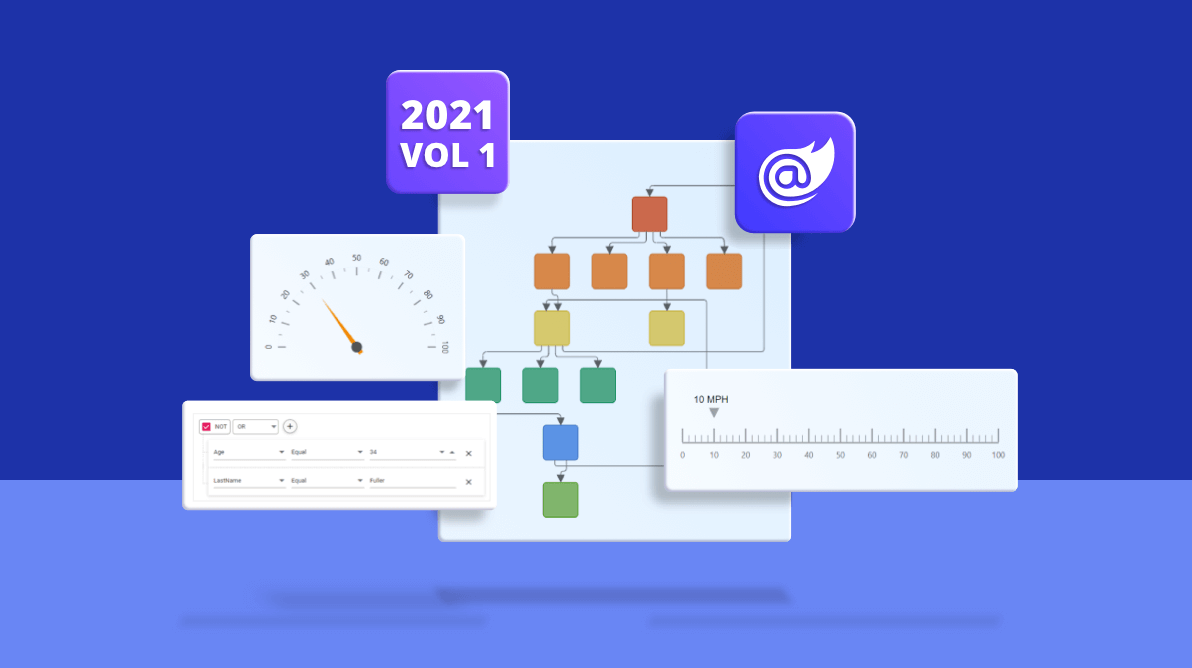We are glad to inform you that our Essential Studio® 2021 Volume 1 release is available now! In this blog post, I am going to give you a quick overview of the exciting new features in our Syncfusion Blazor UI components in this release.
Preview to production-ready
The following Blazor components have been developed to meet industry standards and moved from preview to production-ready:
Extensions
We now provide code snippet support in Visual Studio Code and a code generator utility in Visual Studio 2019. These features help us rapidly develop applications and considerably reduce the amount of time required to integrate Syncfusion Blazor UI components into them. Additionally, we provide code snippets by feature.
Refer to the following screenshots.
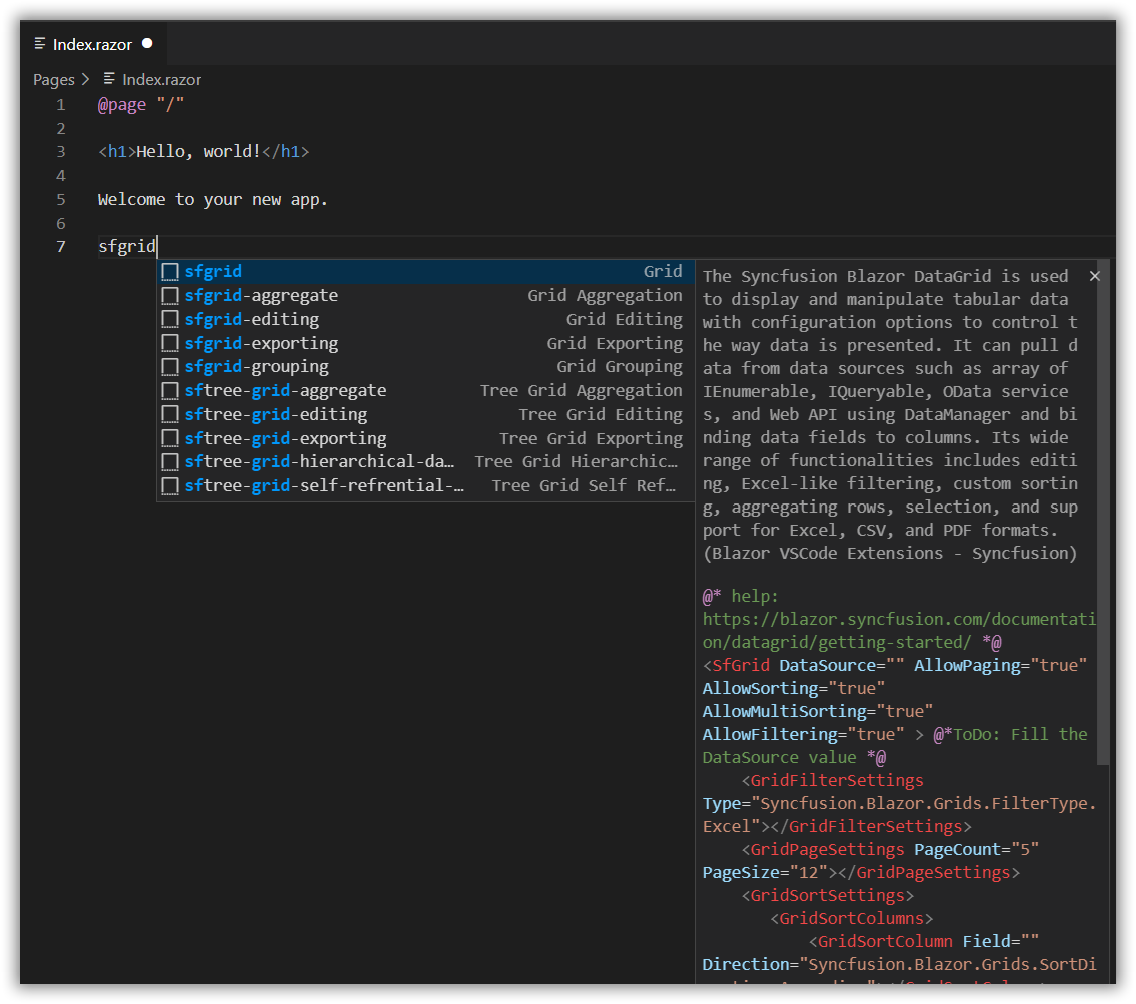
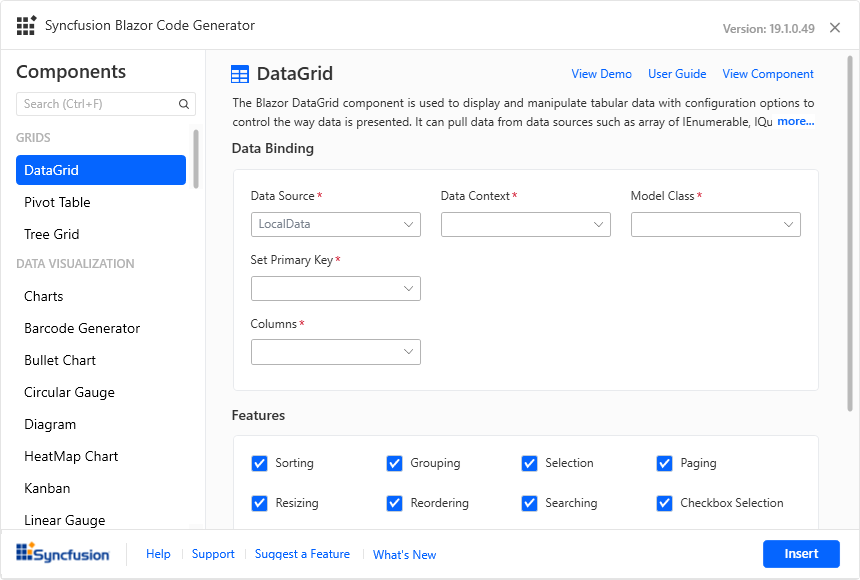
DataGrid
In Blazor DataGrid, you can bind complex data to the grid columns using the ExpandoObject and DynamicObject properties. You can also perform data operations such as such as filtering, searching, sorting, and grouping.
Gantt Chart
The new features available in Blazor Gantt Chart are:
- Data sources can be bound to the Gantt Chart without any serialization.
- Read-only mode for the task information dialog.
- Drag-and-drop rows option.
TreeGrid
The Blazor TreeGrid now supports complex data binding using the ExpandoObject and DynamicObject properties, like in the DataGrid control. It can also maintain its expanded or collapsed state while exporting its data.
Scheduler
The Blazor Scheduler delivers the following highly requested features:
- Multiple events dragging: Select multiple appointments using the Ctrl key and reschedule them to another time or resource by simply dragging and dropping them.
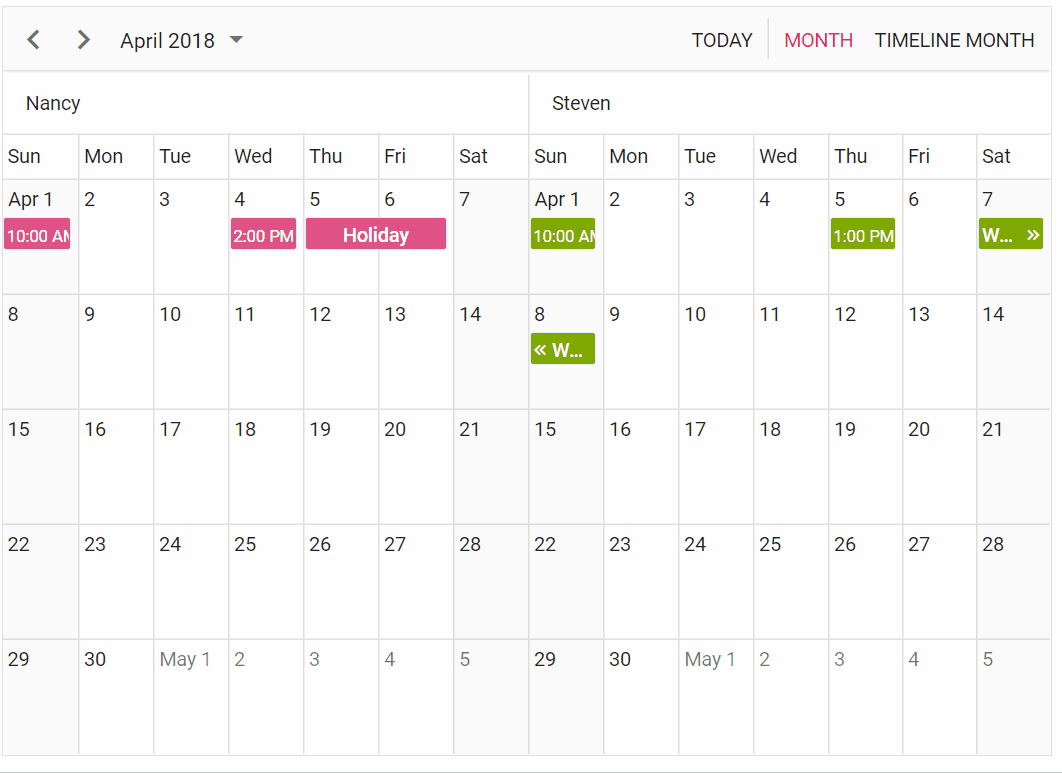
Dragging and dropping multiple events in Blazor Scheduler Note: For more information, refer to the Blazor Scheduler user guide documentation.
- Week Rule option: Determine the week number based on the first day of year, first four-day week, and first full week.
- First month of the year customization: By default, the Blazor Scheduler considers January the first month of the year. But you can customize it; for example, you can set March as the first month for the year. In the following image, the year will start from March 2021 and end in February 2022.
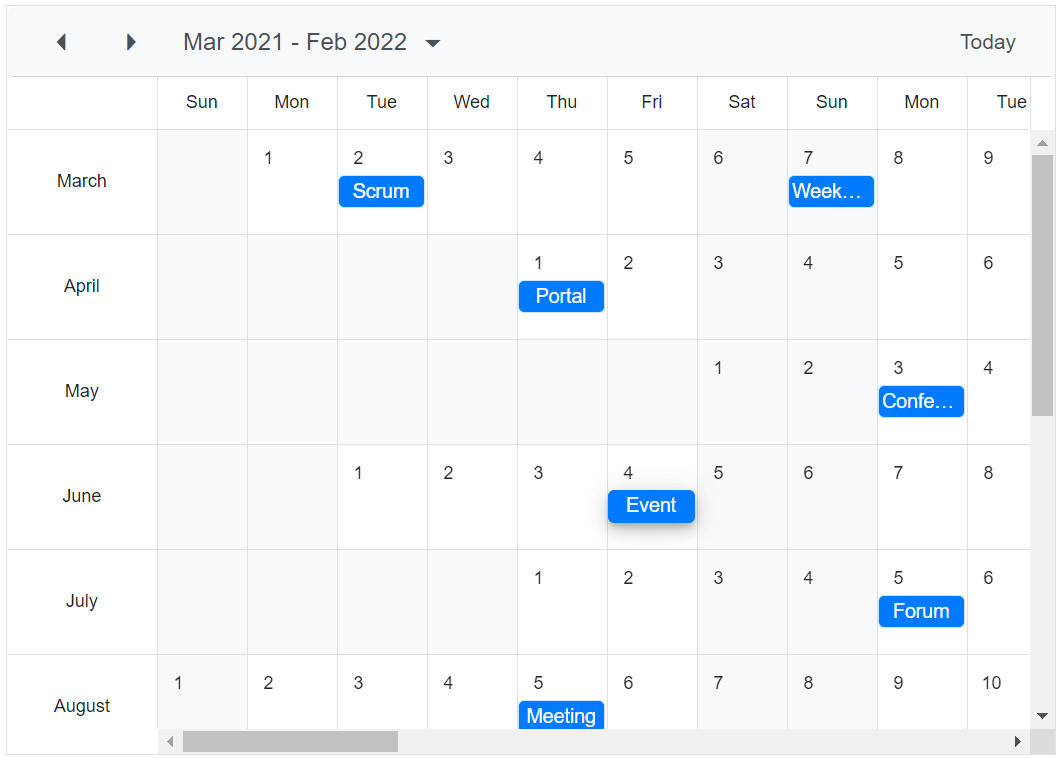
Customizing first month of the year in Blazor Scheduler - Timeline year improvements:
The Timeline year view in the Blazor Scheduler has the following new features:- Row auto height: Auto adjust the row height based on the number of events in a day.
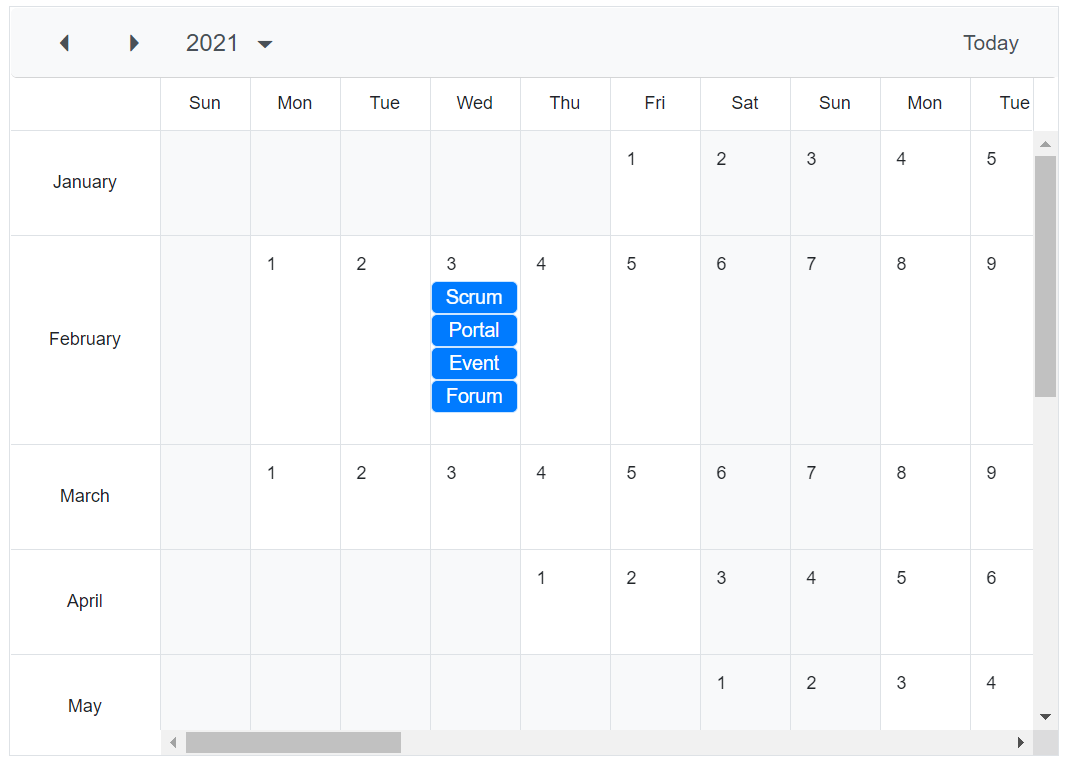
- Template support: Customize the day and month headers using template elements.
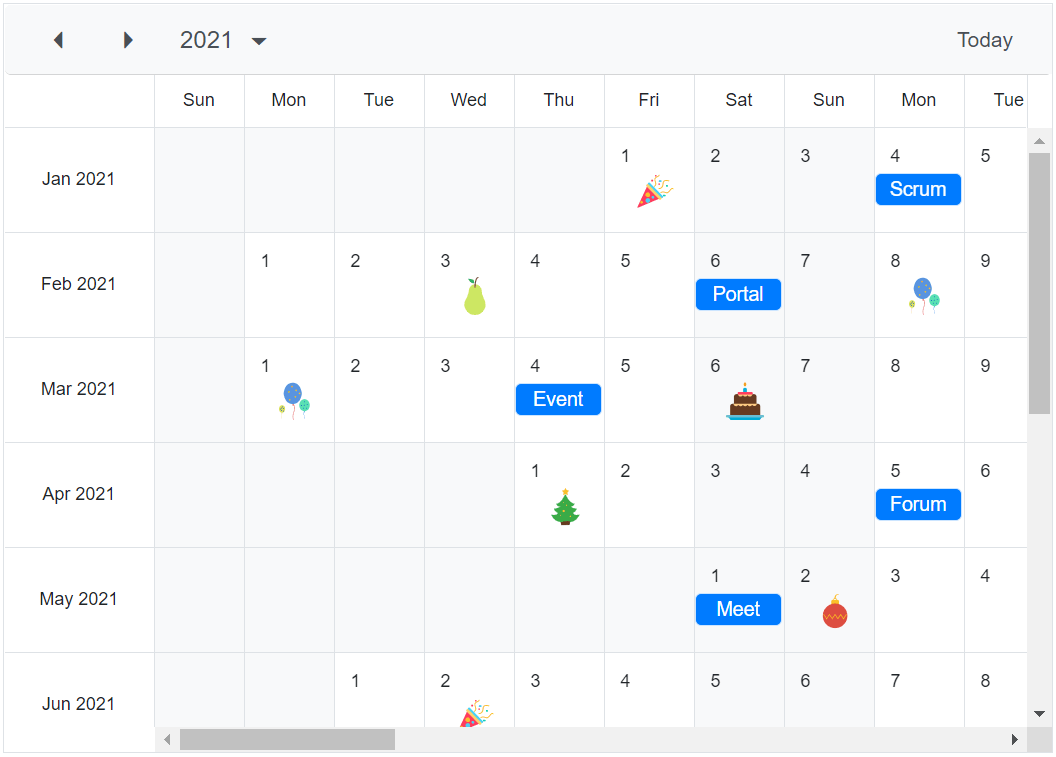
- Row auto height: Auto adjust the row height based on the number of events in a day.
- Persistence scroll position: Maintain the Scheduler scroller position on state persistence.
Tab
The Blazor Tabs component now allows us to reorder its tabs by simply dragging and dropping them. With this, we can easily reprioritize the tab items’ order.
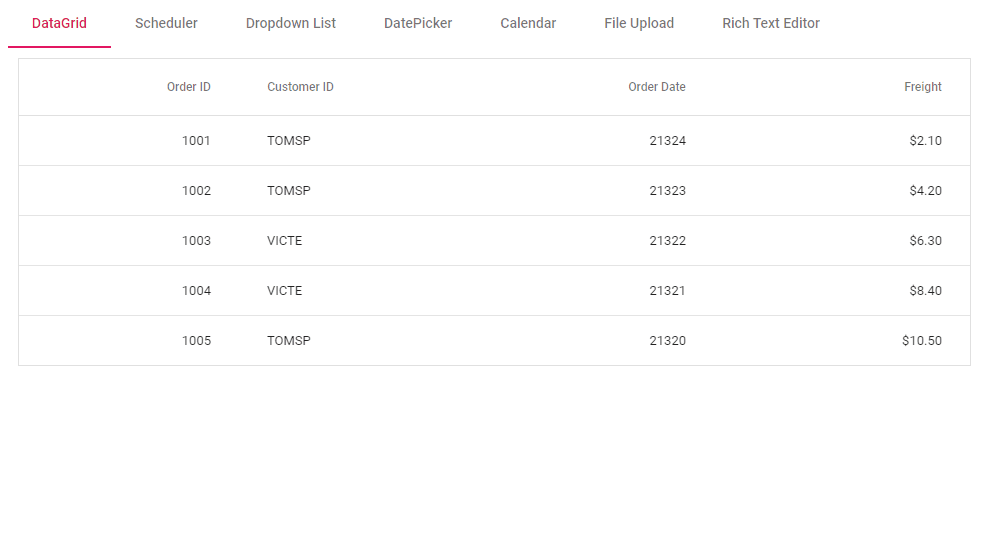
Note: For more information, refer to Blazor Tabs demo and documentation.
Splitter
The Blazor Splitter provides support to persist a pane’s state, such as its minimum and maximum widths, its size, and its state.
Gauges
The Blazor Linear Gauge and Circular Gauge now fit with their parent containers without any empty space when we haven’t specified a width and height for them.
Query Builder
With the Blazor Query Builder, you can define your own user interface to create or delete rules using a header template. Also, you can customize the AND/OR and NOT conditions.

Note: For more information, refer to our Blazor Query Builder documentation.
Button Group
The following features have been added to the Blazor Button Group component:
- Two-way binding: Reflect the changes in the matching views immediately when there is a change in data.
- HTML attributes: Specify additional HTML attributes in the button group element.
Diagram
The Blazor Diagram control now prevents the connector segments overlapping with nodes in complex hierarchical layouts.
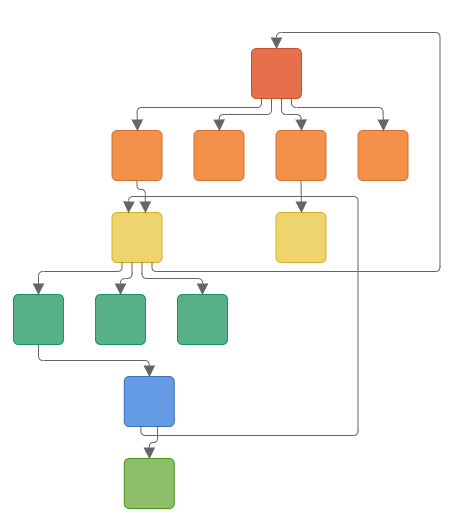
Word Library
The Blazor Word Library now allows you to preserve custom shapes while converting DOCX to PDF format.
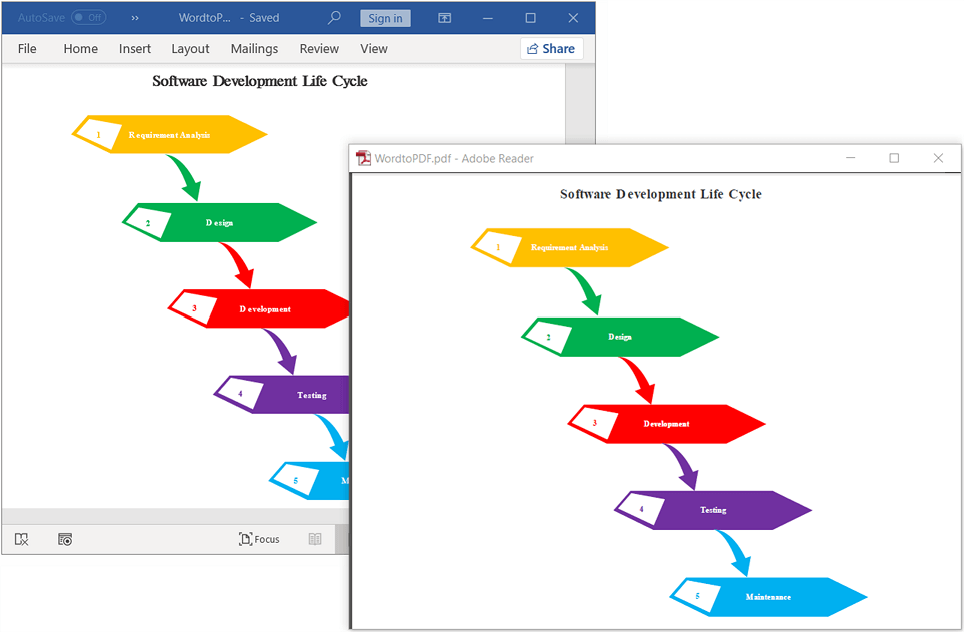
Conclusion
In this blog post, we have seen the new, useful features included in our Syncfusion Blazor controls. These features are available in our Essential Studio®® 2021 Volume 1 release. You can check out the list of all the features in our release notes and on the What’s New page.
If you are not yet a Syncfusion customer, you can try our 30-day free trial to check out these features.
So, try these features and share your feedback in the comments section below. You can also reach us through our support forums, Direct-Trac, or feedback portal.
If you liked this blog post, we think you’ll also like the following articles:
